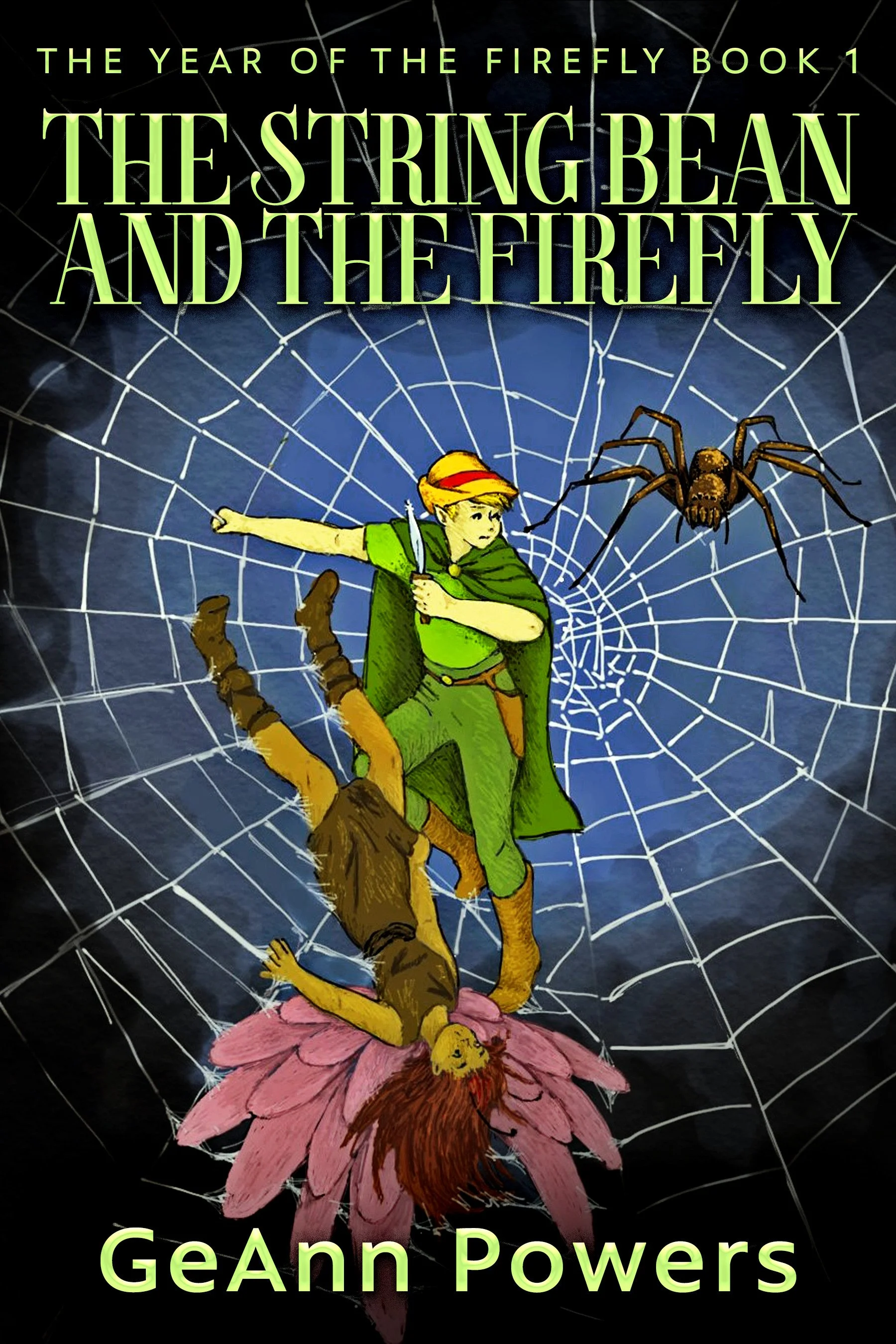Candlelighter (Legends of Cruxia Book 1)
Book summary
In Candlelighter, a teenage girl witnesses the murder of a High Father by a ruthless hit squad and becomes the target of a city-wide hunt. As conspiracies unravel in Cruxia, an investigator, her wizard assistant, and a reluctant ex-sweeper find their fates intertwined in a gripping tale of survival, secrets, and rebellion.
Excerpt from Candlelighter (Legends of Cruxia Book 1)
Roisin hung suspended, her legs wrapped in the rafters. She held her tunic close while reaching for the candle. She wasn’t modest, her clothes were dyed cheap, one wrong move and she’d catch flame. The Lamplighter’s Guild is not safe work.
She dangled above the chandeliers in Her Sacrament of Veridaan, a marble temple built to honor Sister Spring, goddess of birth. Lamplighters were responsible for all the street lights, Candlelighters got the more prestigious work inside.
She worked hard for her new position, head Candlelighter on the Gods’ Way. She took her knocks on the lamp posts working the Mule Quarter, lighting the taverns and brothels. Sure, it was her home, but it was also the most dangerous burg in all of Cruxia. Once the sun set, out came the pimps and the slavers all looking for some sweet young thing to visit horrors upon. Worse were the Moles, mutated half-men that lurked in the city’s sewers. Roisin thanked Auron she was born a girl for once. Young boys were all the rage on the red market anymore.
Growing up in the Mule was her saving grace, she knew which streets to stay off, which inns were safe, territories that shifted like the tides from day to day, week to week. She was smart too, thanks to her da’. A school teacher, he taught her how to read, write, and count before consumption took him to Sister Mortia. Siblings bless his soul. Amen.
He said Roisin got her smarts from him, and her prudence from her ma’. Roisin never met her mother, complications in childbirth. It cost da’ all his savings to hire a medicer so that Roisin would live, but she was worth every silver, he used to say.
Roisin smiled a sad smile, upside down, looking at the silver ring on her thumb. Her da’s wedding band. His last gift to her.
But she daydreamed on the job. Gods knew she did enough dreaming when she slept. Daydreaming didn’t get her this position, nor her savings, nor the room she rented. Her very own room, not some rope slung in the middle of a shanty tenement for her to slump on with the other poor wretches. No, a room with a bed and desk and a candle. Beneath her floorboards were nineteen silver pieces she saved over five years as a Lamplighter. Her ticket out of the Mule.
Time to focus on the goal. Millions of candles to light before she saved enough. So there she hung in the rafters of Her Sacrament of Veridaan, the greatest temple on the Gods’ Way. Veridaan was the Sister of Spring, goddess of birth, protector of the lost. It was here Roisin spent her first year as an orphan.
The temple was carved from one great block of limestone, wide steps and tall columns marched up its entrance. Inside was a dazzle of marble floors, mahogany pews, and a dais fit for the gods. Roisin looked at the towering stained glass window facing north. Veridaan in sparkling blue and white bent over a congregation of children. The Sister of Spring was the closest thing she ever had to a mother.
She scratched her pitch-stick on the sandpaper bracelet she wore, sparking the alchemicals at its tip. These would burn blinding then slow on tallow, giving her time to light all forty candles before moving to the next chandelier. Eight chandeliers in all, Veridaan’s temple was the largest on her route by far. Candlelighters started their shift at the fifth bell, finishing their route by eighth toll so the whole city glowed through the night. Dousers came through just after sunrise to put them out, Roisin’s least favorite shift. She could stay up all night but waking up early was a different animal entirely.
Roisin stretched her arm, brought the pitch-stick to the last candle on the chandelier, then pulled herself back up to the rafters. She risked a glance to the floor some eighty feet below. A figure, small as a doll, bent at the statue of Veridaan behind the dais. Father Alonso was High-Father and caretaker of the orphans. A jolly, ruddy-faced man who let Roisin in every night and locked the doors behind her when she left. A good man, in the darkness following her da’s death the High-Father finished her education.
Knock, knock. Roisin shivered and pushed down the door.
Instead, she smiled and blew the High-Father a kiss far below, then monkeyed up the higher catwalks. A spider web of rafters spiraled off the main dome, wending and winding to every corner of the temple. She inched along, wrapping her legs on the next strut before working her arms forward. Roisin was ever careful, prudence from her mother.
She had flown in these rafters, sailed around them like a bird in her dreams. When she first came to this temple she would not speak, grief a cancer bundled behind her eyes. Father Alonso was the only one who cracked through to her. He set a book on her bed stand before leaving her to catatonia. Reading was the only thing that made the pain go away, the gift her father left her, literacy. Alonso didn’t push her to open up, he just came on the last day of the week and set another book on her bed stand. Finally, after six months he spoke to her.
Roisin crabbed over the rafters to the next chandelier lighting another pitch-stick while she thought back to that day. Father Alonso’s face was a map of burst blood vessels leading to a bulbous potato of a nose. His white hair hung in wisps around a bald pate and if he wasn’t up at the pulpit in sermon, there was a wine goblet in his hand. He knocked twice, then entered her room with his wine and a book.
She brought her knees up to her chin and pulled away into the corner like she did with any visitor back then. He just smiled, sat on the edge of her bed, and picked up the book from last week.
“Mediations on Humanity? Hmmm, you surprise me again, little Rose. Galvin Mechino is tough for most scholars. Was it difficult?”
Her only answer was an animal stare.
“Yes, yes, well, this book is different.” He flipped open the new one and sprayed through the pages with a thumb. “It’s empty. This book is for you to fill.” He set his goblet down with a sip and pulled out a feather-pen and ink well. Roisin’s eyes widened, they belonged to her da’. “What I’d like you to do is write down your dreams. Would that be okay?”
She worked over to his side, took the pen, and held it to the candlelight.
“Grief is a deep ocean, little Rose, there are few vessels to traverse it. I find dreams to be the soundest ship.”
“I don’t like my dreams,” she rasped. Her first words since her father died. Knock.
His green eyes sparkled. “But you could. Dreams come from here,” he tapped his temple, “which means no matter how scary, or angry, or sad they are, they come from you. When you realize this, you can shape them and eventually shape yourself. Next time you awaken, immediately take up this pen and write down what you saw. No matter how hard it is to face, no matter how much you don’t want to, write down the truth of what happened. The brain is a marvelous and terrible tool. The recollection of your dreams leads to awareness. Inside the dream you will have control. And Veridaan’s truth is found there, ‘control within begets control without’.”
He patted her head, drained his glass, and stood to leave.
“Thank you,” she whispered.
“Thank the Siblings for giving you a father so special.”
She grabbed his waist and cried and cried and cried.
Roisin wiped a tear as she crawled to the last chandelier. Some wounds still hurt no matter the gulf of time. She thought about how far she’d come. Her position, her savings, her room, all because Father Alonso guided her through that darkness. She still kept her dream journal tucked away with her silver. It was tough at first, but as the pain subsided, she found the control Alonso spoke of. In her dreams she soared these rafters, soared above this city, soared across the oceans to distant lands of wonder. She was utterly in control of her dreams; any fancy, any fantasy, whatever she wanted.
Which is why she didn’t need to waste time on the job. She dreamed enough at night, and she must focus or—
Shit!
She watched the candle spin in slow motion. Falling, falling, falling to the floor far below. Stupid little girl, stupid Mule wench. She’d been wrapped up in dreams, and look what it cost? She knocked a candle with her foot like a common urchin on the lamp posts. Krentor’s Bell struck ninth toll right as the candle shattered on the floor. She was behind already, and this made it worse. Father Alonso wouldn’t mind the mess, but her superiors would have her tongue for tardiness on her first night as Candlelighter. She scampered around the chandelier, hastily lighting the last candles before heading to the floor.
In her hurry, she didn’t notice the four figures creeping through the cathedral door.
Maharez hated the next part most. He and his sister would rush in from both sides and grab the target’s arms, locking them in place until Hook could work his sorcery. Or just cut their throat. Polo watched. Always. Polo liked to watch.
To Maharez, it wasn’t the killing, it was the bit right before. Right when they grabbed his arms. The anticipation, the shaking, whether they shit themselves or not. At least Hook wasn’t a sadist. All business. He got in fast and finished them off. Those seconds took ages.
Maharez hated the life; sneaking, sulking, nights crammed in the worst part of the city. All four of them stinking up an inn like common beggars. He hated killing. But it was the job. He would not think about where it placed him next on the great wheel of stars. Halladar has no time for killers.
Still, was it worse than the slave galley? Chained to five other people, stinking skin sloughing off around the cuffs. An eternity of push and pull? He shivered.
And there was Polo’s cane to the back of the head. Smack.
“Focus,” the Mole whispered in his ear. Great Halladar, he hated Polo more than anything. Everyone hated Polo and Polo hated everyone, a wrinkled and pustule-covered Mole with two great cataracts for eyes. He was ugly even by Mole standards, hunch-backed and liver-spotted.
The four crouched behind a pew in some temple devoted to some god of these white people, Verra or something. Another temple on a block devoted to them, nothing special. These Cruxians had so many gods, too many gods. The temples of Halladar were a thousand times more beautiful; mosaics of gems and gold spiraling up the columns. Maharez missed Hanrabi.
Bent at the dais was their mark, some bald, fat priest. Polo claimed it was a political job. Maharez didn’t care. It was just another notch on his debt.

















Praesent id libero id metus varius consectetur ac eget diam. Nulla felis nunc, consequat laoreet lacus id.